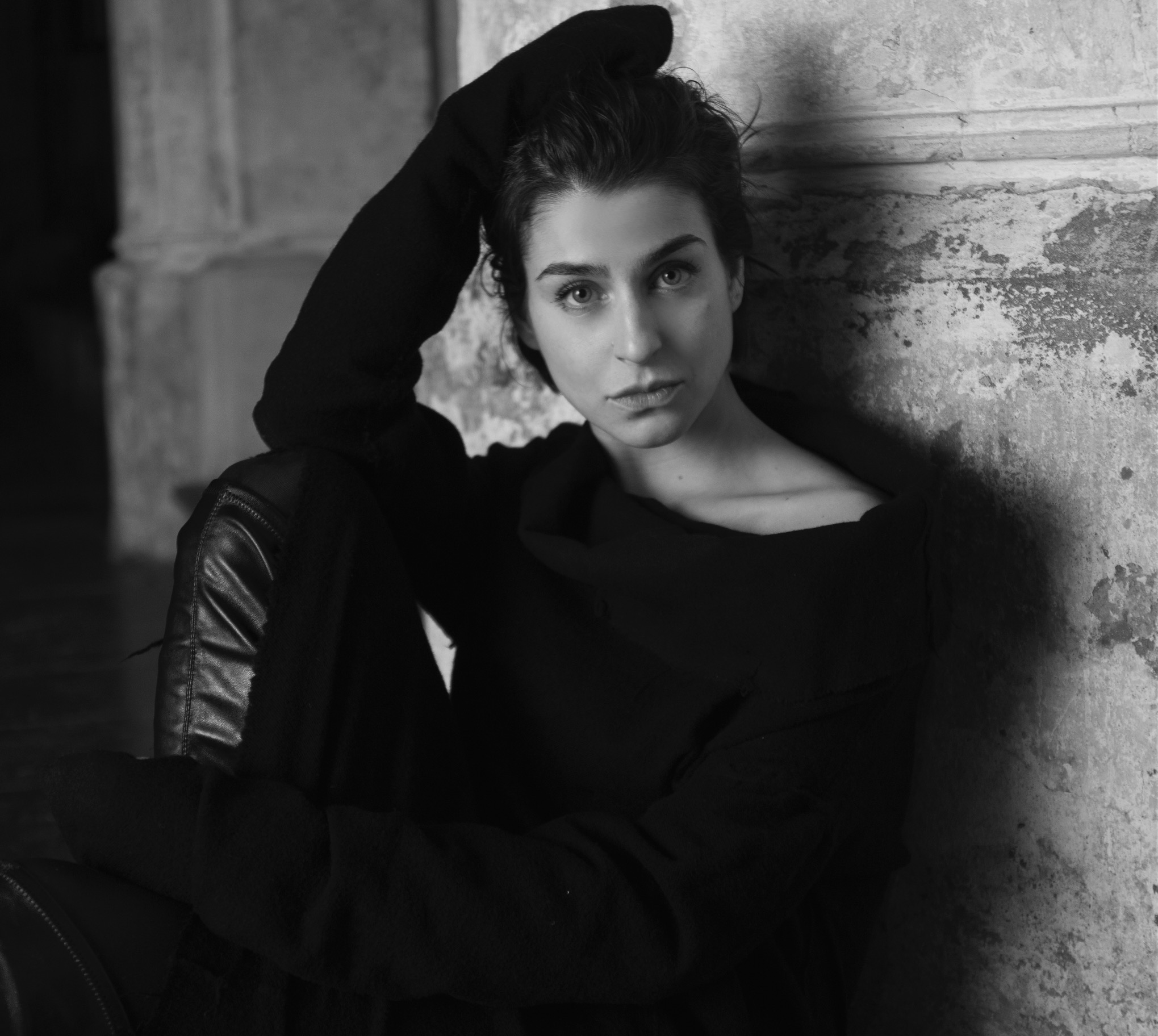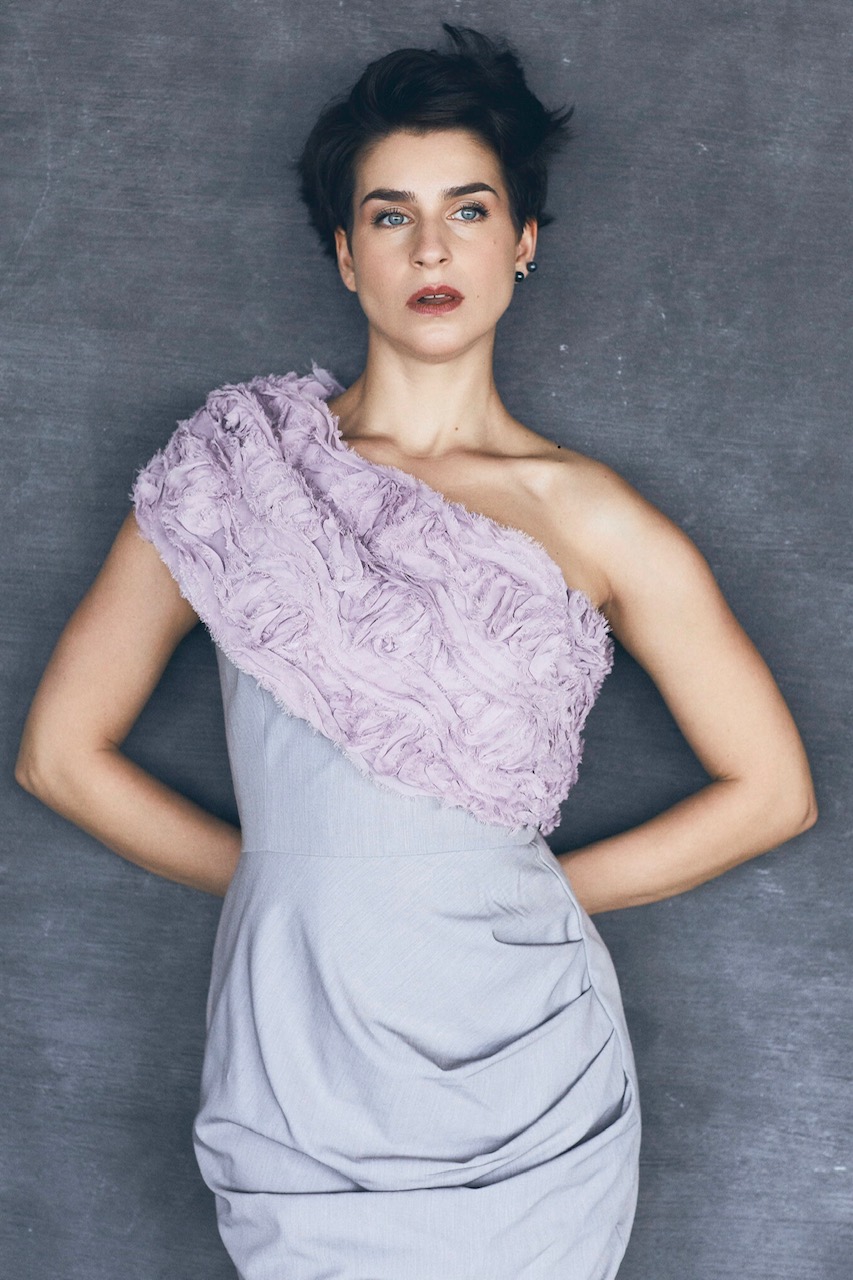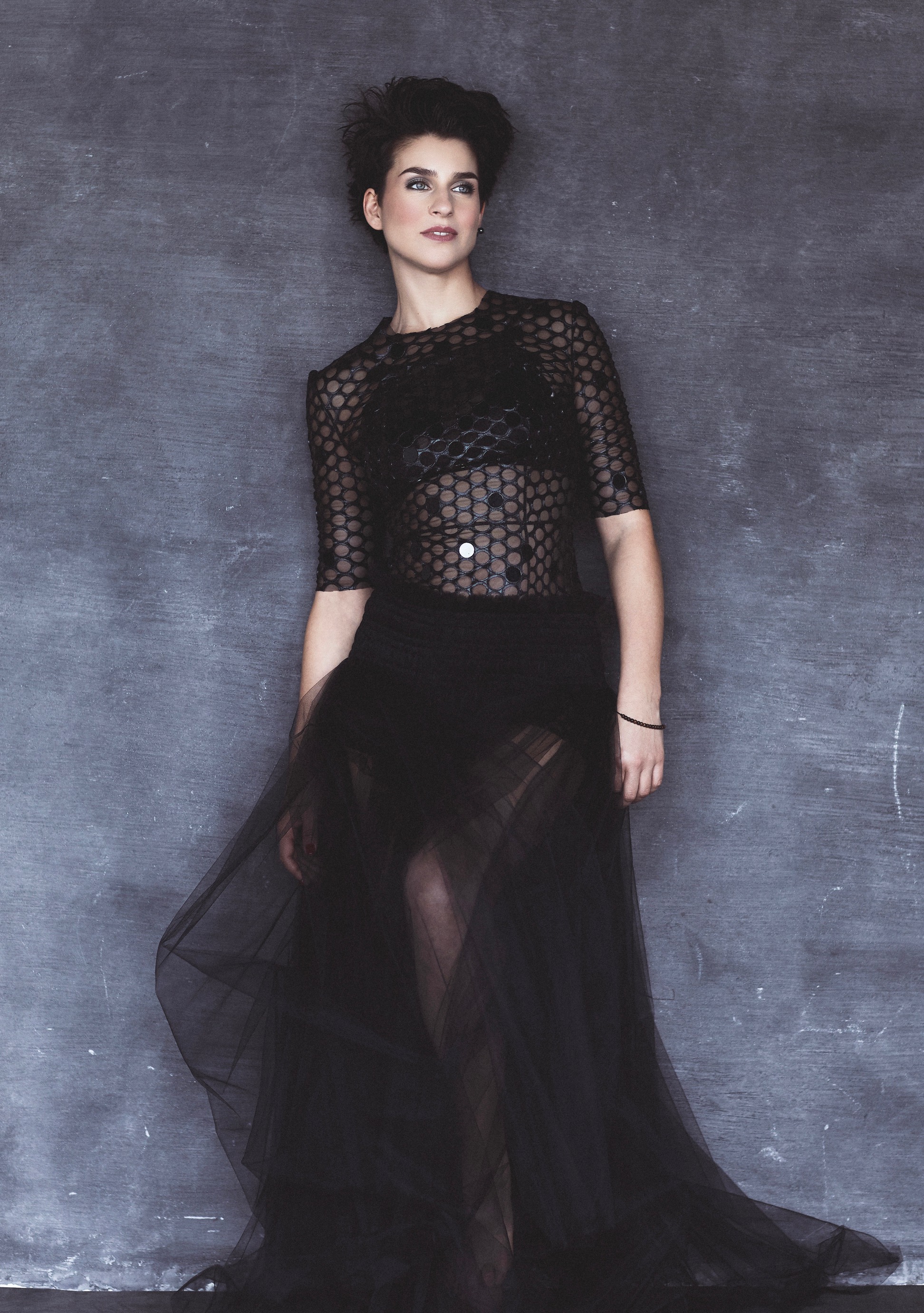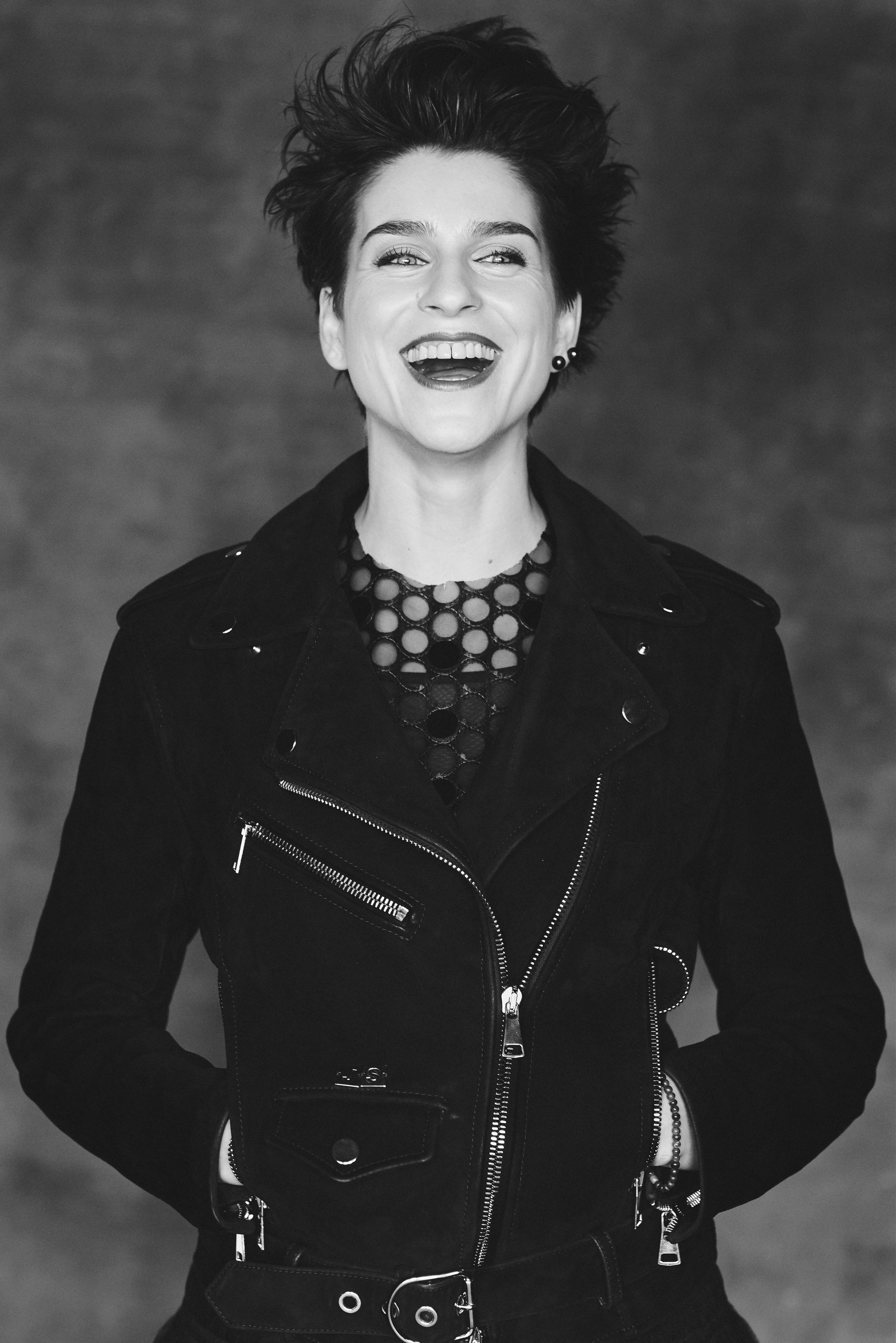Growing Infinity. Interview with opera soloist Asmik Grigorian
- Dec. 2, 2022
Interviewed by Ona Jarmalavičiūtė
Watching Asmik Grigorian's impeccably advancing career, every year it seems that there is nowhere left for her to rise higher. The stratosphere was left behind back in 2016, when the singer was named Best Newcomer at the International Opera Awards. A couple of years later, the cult role of Salome on the stage of the Salzburg Festival launched her career beyond the thermosphere. Being recognized as the best opera soloist in the world already sounds like the cosmos. The constellations of La Scala, Vienna Opera, Teatro Real in Madrid and other famous stages of the world followed. You don't expect there could be something beyond that. But Asmik is an ever-growing infinity. Her professional life will not stop expanding and this year, in 2022, there were even four firsts in her career. The first record, "Dissonance", with the Lithuanian pianist Lukas Geniušas was released. Three roles were sung for the first time at the Salzburg Festival. A stunning debut took place in Tokyo, where a concert performance of "Salome" was evaluated as exceeding expectations. This year is also the first time Asmik has performed on stage without beta blockers.
In this interview, the soloist shares her insights about these new peaks in her career and also little nothings, such as death, paradoxes, a longing for Lithuania and finally the stage intuition developed by her mother Irena Milkevičiūtė. In essence, this conversation is about the limits of possibilities and their infinite transcendence.
Triple Incarnation
"It was sung heavenly", the German critic Hans Gärtner wrote about her performance in August this year after she stepped off the stage one scorching summer evening in Salzburg, Austria. She had dived through vocal loops for four hours, in the roles of nun, wife and femme fatale. "I have to test my limits," she said then. Her performance once again became the axis of the evening around which all three parts of Puccini's opera Il Trittico revolved. In her orbit, the conductor Fanz Welser-Möst, in his own words, "got straight to the point, from the first note." The press responded with the words "triumph", "charisma", "sensation" and "transformation". Below are Asmik's summer impressions.
Ona Jarmalavičiūtė (O.J.): How did you feel when you returned for the sixth summer to Salzburg?
Asmik Grigorian (A.G.): Six years is indeed quite a long time. I call Salzburg my place of strength. No matter how hard I work, it feels like I'm on vacation here. The excellent conditions that the summer festival provides for singers allow them to perform at the highest level.
I used to think that this was how the Salzburg Festival gives me freedom. But today I understand this is not so. It gives great peace of mind. After all, I have always been free, but earlier I had to fight very hard for it, to defend and protect my freedom. And today I don't need to do that anymore. And I am extremely grateful to Salzburg for this power.
O.J.: You have mentioned that you immerse yourself into your roles completely. How do you manage to embody three very different women in Il Trittico?
A.G.: I have a lot of experience going in and out of different roles. That's why today I don't go anywhere, I just stay with them. I also rely on personal experiences. When I see a role, I see a person in it. I feel what she feels.
Over the years, I’ve learned how to correctly express the meanings of music and words, how to interpret them. Technically, I try to fulfill the role as accurately as possible, but on stage I follow my intuition. I am grateful to my mother for this. She taught me for many years until I understood. The path of intuition is not easy, it requires a lot of dedication, strength and courage. In order to play music intuitively, I have to be one hundred percent open with my soul on stage. To become more than a performer, a medium of what is encoded in music. It's easier to go on stage naked!
O.J.: What was the most difficult for you in this opera challenge?
A.G.: I sang the triptych ten years ago and today my biggest task was not to repeat old mistakes. It's a pity, but the body has such a good memory. Three roles in one evening was also a huge task, as they are technically written for quite different voices.
O.J.: You have said that your colleagues in Salzburg are your dear friends. What was the atmosphere like during the creative process?
A.G.: The creative process was the best an artist could imagine. The whole team were exclusively people I call my family. They know me and I know them, we trust each other one hundred percent, there is no need to talk or explain. This is a great gift, and the process is much faster and more meaningful.
2022 for Asmik was the first year she went on stage without beta blockers. The soloist also openly shared these experiences in the documentary Fuoco Sacro: A Search for the Sacred Fire of Song (dir. Jan Schmidt-Garre, 2022), which premiered last month, which is another piece of news about her career. Asked about the changed performances in Salzburg, the opera singer says:
A.G.: "A separate article can be written about my panics, it is a lifelong struggle. I said that if one day I can go on stage with peace of mind, it will be the greatest gift for me! But at the same time, I am grateful for this disease, because I learned a lot about myself because of it. I am learning every day, moving forward. I can't say that anything special has happened this year in terms of my panic attacks. They are always with me".
Memories of the streets of Vilnius
Today a cosmopolitan who never stops travelling and singing for the whole world, Asmik still misses her friends and family members left behind in Lithuania, "and sometimes just to walk the streets of Vilnius". Her own path as a singer began on Gedimino Avenue where she graduated from the Lithuanian Academy of Music and Theatre in the class of her mother and the prima donna of the Lithuanian opera scene, Irena Milkevičiūtė. Asmik emphasizes that the pedagogues at the academy "teach really different subjects, we have many different vocal schools in one place". Milkevičiūtė passed hers on to her daughter, emphasizing the importance of musical intuition and a natural voice. "When you carry a child, she learns everything that is inside you," the teacher shared in an interview with the Lithuanian press. "She even takes over such things as talent and singing technique. Later it seemed that she was able to do what I wanted without even saying many words." Recalling these early experiences in Lithuania, Asmik singles out the most important lessons learned:
A.G.: This is a separate topic, I could list so many. The basis, however, remains the intuition I mentioned earlier. I also highly appreciate the fact that my mother taught me to preserve a natural voice as much as possible, without any strained operatic colours. She always told me that a person's voice should be what it is, natural, and that it is beautiful. Of course, this is a matter of taste. However, for my taste, natural sound has been lacking on the opera stage lately, it is more sung as opera "should" sound.
The bond between the two soloists, mother and daughter, is extremely close even today. "I am very happy that she asks me a lot about everything, we correspond a lot on the phone about technical matters. The further she goes, the more she trusts, believes in me and wants to know," Milkevičiūtė recently said.
The Lithuanian scene today for Asmik can hardly be separated from all others. A.G.: "In the past, I had a greater sense of responsibility there, she recalls. There were more familiar people sitting in the hall and there was so much love that I was always afraid of not giving it justice. The fear is still here. But now those people and that love are all over the world, not only in Lithuania. Because of that, I probably wouldn't be able to distinguish the scenes much anymore".
O.J.: And do you have Lithuanian music in your repertoire? How do foreign audiences react to it?
A.G.: I very rarely sing concerts, I am usually on the opera stage. Since there aren't many Lithuanian operas and they are rarely staged, I don't have much experience with that. It is true that I have performed Dalia's aria in concerts. And I have to admit, the audiences abroad accepted it even better than in Lithuania! This aria doesn't get much applause or attention back here. But anyway, I don't have much experience in performing the Lithuanian repertoire.
And this is what my heart is talking about
Next to the heavenly clouds and flying stars, Asmik is a human being like everyone else. Her heart guides her through life. She is able to be free, open and honest. In her life, she paradoxically combines discipline with spontaneity:
A.G.: "This is a very defining paradox for me. I am able to plan precisely and clearly, which early motherhood taught me. Planning gives me a sense of security in the midst of all that travel, errands, and instability. But as a person, I never think about tomorrow. I'm not even sure if it will come. I do everything today, here and now. This is how I live paradoxically. I plan like I'm never going to die, and I act like today is my last day".
In an interview, Asmik called death "the angel of change". When asked what transformations, beginnings and endings prevail in her life now, she answered:
A.G.: "Seeing death as the end has never suited me. I remember at one point when my dad passed away I thought maybe there was no death at all. But then I realized that we all still feel it and see it all around us. So I started looking for new names. One of my friends once called death "the angel of change". I realized that this is what it has always meant to me. It is not only the end, but also the beginning. Without one there is no other.
And this is what my heart is talking about. Little deaths happen often in life. I like to end things and start over. This cycle of constant change is very important to me. I couldn't be without it".



